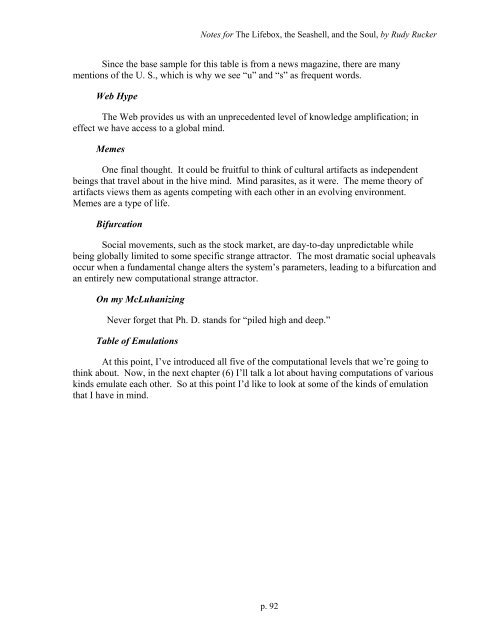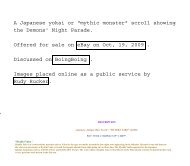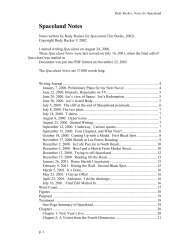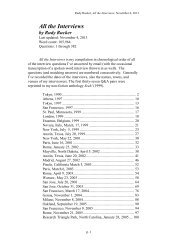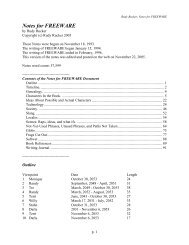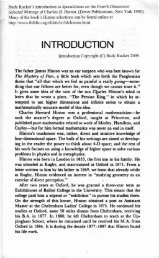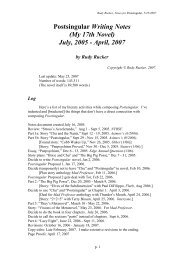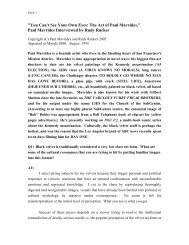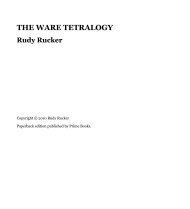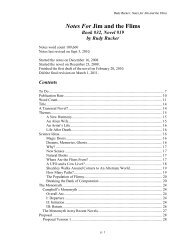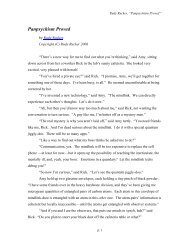Notes for the Lifebox, the Seashell, and the Soul - Rudy Rucker
Notes for the Lifebox, the Seashell, and the Soul - Rudy Rucker
Notes for the Lifebox, the Seashell, and the Soul - Rudy Rucker
You also want an ePaper? Increase the reach of your titles
YUMPU automatically turns print PDFs into web optimized ePapers that Google loves.
<strong>Notes</strong> <strong>for</strong> The <strong>Lifebox</strong>, <strong>the</strong> <strong>Seashell</strong>, <strong>and</strong> <strong>the</strong> <strong>Soul</strong>, by <strong>Rudy</strong> <strong>Rucker</strong><br />
Since <strong>the</strong> base sample <strong>for</strong> this table is from a news magazine, <strong>the</strong>re are many<br />
mentions of <strong>the</strong> U. S., which is why we see “u” <strong>and</strong> “s” as frequent words.<br />
Web Hype<br />
The Web provides us with an unprecedented level of knowledge amplification; in<br />
effect we have access to a global mind.<br />
Memes<br />
One final thought. It could be fruitful to think of cultural artifacts as independent<br />
beings that travel about in <strong>the</strong> hive mind. Mind parasites, as it were. The meme <strong>the</strong>ory of<br />
artifacts views <strong>the</strong>m as agents competing with each o<strong>the</strong>r in an evolving environment.<br />
Memes are a type of life.<br />
Bifurcation<br />
Social movements, such as <strong>the</strong> stock market, are day-to-day unpredictable while<br />
being globally limited to some specific strange attractor. The most dramatic social upheavals<br />
occur when a fundamental change alters <strong>the</strong> system’s parameters, leading to a bifurcation <strong>and</strong><br />
an entirely new computational strange attractor.<br />
On my McLuhanizing<br />
Never <strong>for</strong>get that Ph. D. st<strong>and</strong>s <strong>for</strong> “piled high <strong>and</strong> deep.”<br />
Table of Emulations<br />
At this point, I’ve introduced all five of <strong>the</strong> computational levels that we’re going to<br />
think about. Now, in <strong>the</strong> next chapter (6) I’ll talk a lot about having computations of various<br />
kinds emulate each o<strong>the</strong>r. So at this point I’d like to look at some of <strong>the</strong> kinds of emulation<br />
that I have in mind.<br />
p. 92


